We’re very excited that five new tenure-track faculty joined our department as assistant professors at the beginning of this academic year. Here are some details about each of them as they get settled at Ohio State and in EEOB.
Dr. Jennifer Hellmann
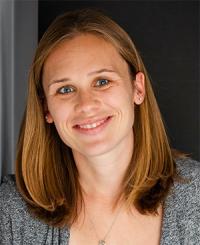
Jenn came to us from the University of Dayton, where she has been an assistant professor since 2020. She examines how offspring phenotypes are altered by parental experiences and how these transgenerational effects facilitate adaption to both natural and human-induced environmental change. Her lab is currently focused on how paternal experiences (e.g., predation, heat, toxins) are transmitted to offspring via epigenetic changes to sperm and alter offspring survival, behavior, gene expression, physiology and reproductive traits. They are also interested in the ways in which the fitness consequences of these paternal effects are context specific, varying with factors such as offspring sex, maternal experiences and the social environment of the father. These transgenerational effects are potentially of great evolutionary significance, as they can prime offspring for their future environment and generate benefits beyond those achieved by developmental plasticity alone.

They study these questions in multiple species of fishes, including Three-spined Sticklebacks (Gasterosteus aculeatus) and Mangrove Rivulus (Kryptolebias marmoratus), which are self-fertilizing hermaphrodites.
Dr. Mandy Slate
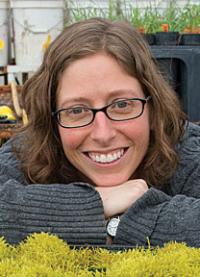
Mandy is joining us after a postdoctoral position at the University of Colorado. She asks questions that connect differences in plant function with community- or ecosystem-level processes like species diversity or carbon cycling. She is also interested in how disturbance and changing climate influence plant-environment interactions. She has just begun a 10-year project aimed at improving our success in restoring native plant diversity during ecological restoration by increasing our understanding of plant-environmental relationships during the earliest stages of growth (germination and recruitment). She works extensively with bryophytes and is excited to have just co-launched the US Bryophyte Conservation Association.
Dr. James Mouton
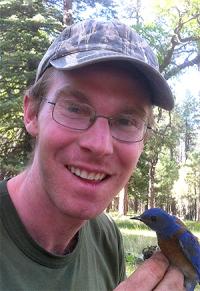
James joined us from a postdoctoral position with the Smithsonian Conservation Biology Institute. His research seeks to understand phenotypic evolution along environmental gradients (including behavioral and physiological reaction norms), predict population- and community-level responses to natural or man-made environmental perturbations, and inform conservation and natural resource management decisions. He focuses on birds as study organisms and is currently involved in fieldwork on California’s Channel Islands off the coast of southern California. This includes work studying the evolution of behavior on islands vs. the mainland and work related to the population ecology and conservation management of the Island Scrub-jay (North America’s only insular endemic species of songbird). He is planning new work in Ohio related to elucidating the mechanisms and ecological roles of hormone- and temperature-mediated maternal effects in songbirds.
Dr. Lindsey Bruckerhoff
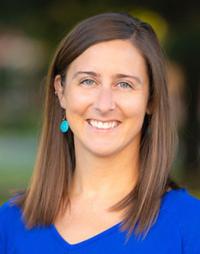
Lindsey was most recently an assistant professor at Oklahoma State University. Her research applies concepts from community ecology, population biology and landscape ecology to inform the conservation of freshwater systems. She is interested in understanding how anthropogenic stressors at multiple spatial and temporal scales interact to drive community structure and function in aquatic systems. Much of her research also aims to understand the role of biotic interactions, especially with non-native species, in driving population and community change across landscape gradients. She uses a wide variety of tools, including comparative field studies, experiments in the field and laboratory, and simulation modeling to address questions to inform the conservation of freshwater systems.
Dr. Casey Pennock
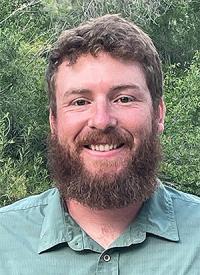
Casey came from the Department of Watershed Sciences at Utah State University, where he was a research assistant professor. Research in the Pennock Aquatic Conservation and Aquatic Ecology Lab focuses on freshwater populations and communities. To this end, they ask questions about what drives species abundance across space and time. Major research themes in the lab include understanding the role of dispersal in population and community dynamics, food web dynamics and effects of ecosystem stressors on trophic relationships, and community change in the Anthropocene. They use a wide range of tools and techniques in their research including lab and field experiments, tagging and telemetry to assess movement ecology, and long-term sampling of aquatic communities. They work with freshwater fishes and macroinvertebrates in streams, rivers, lakes and reservoirs throughout the Midwest, Great Plains and southwestern United States.
